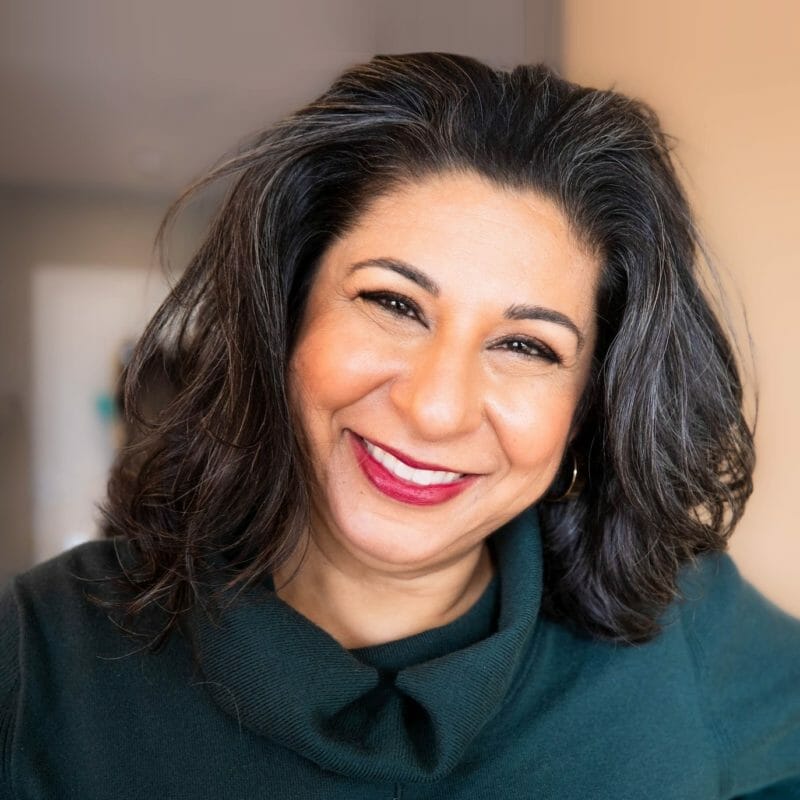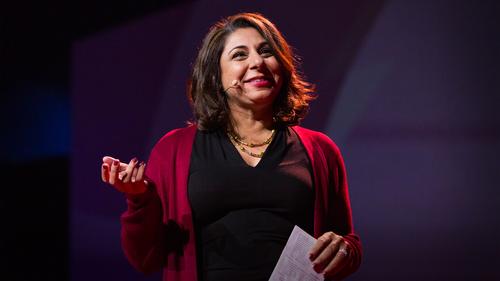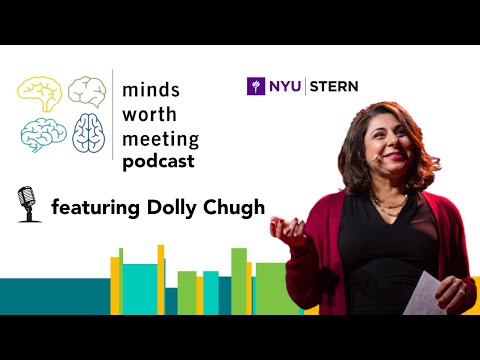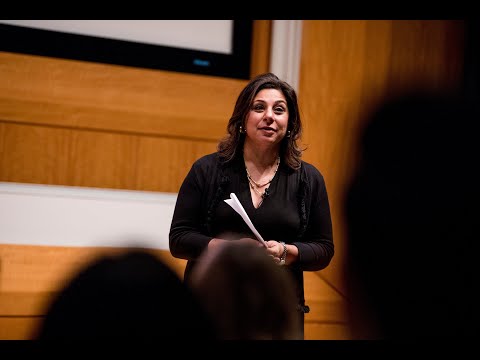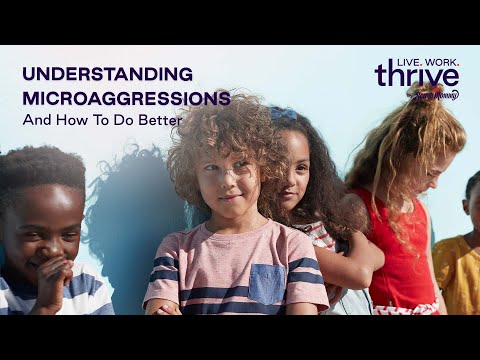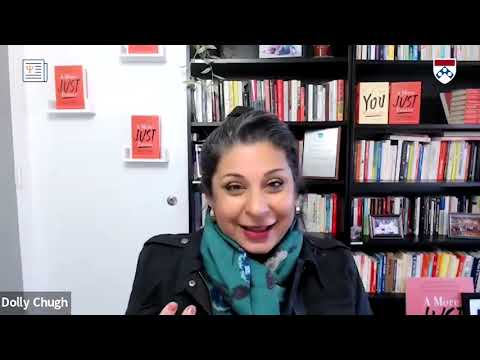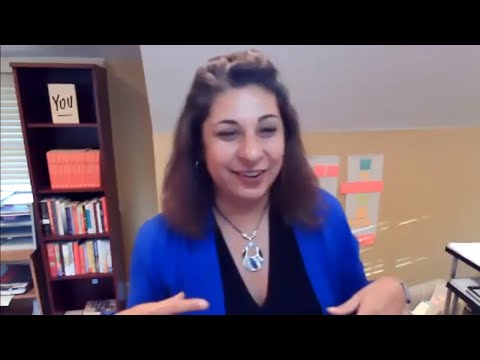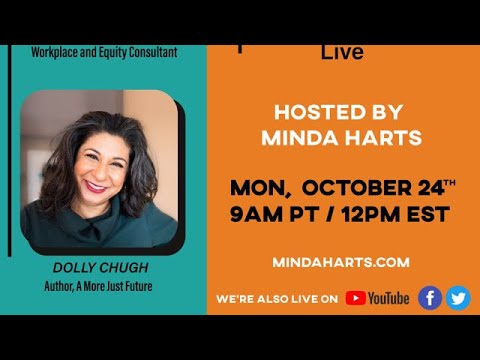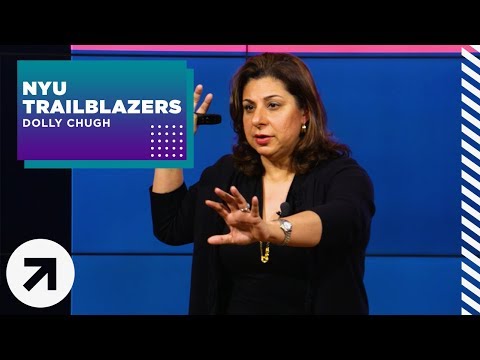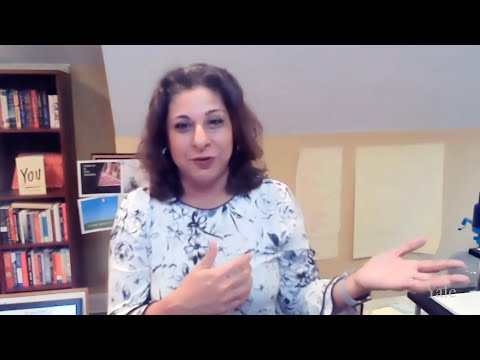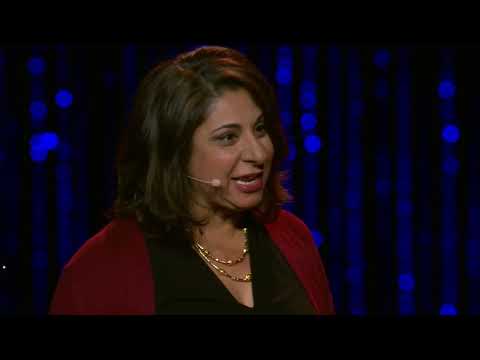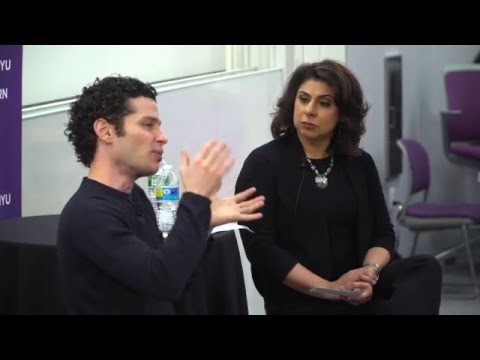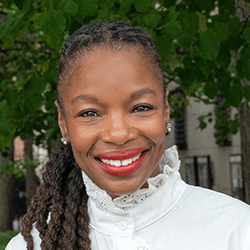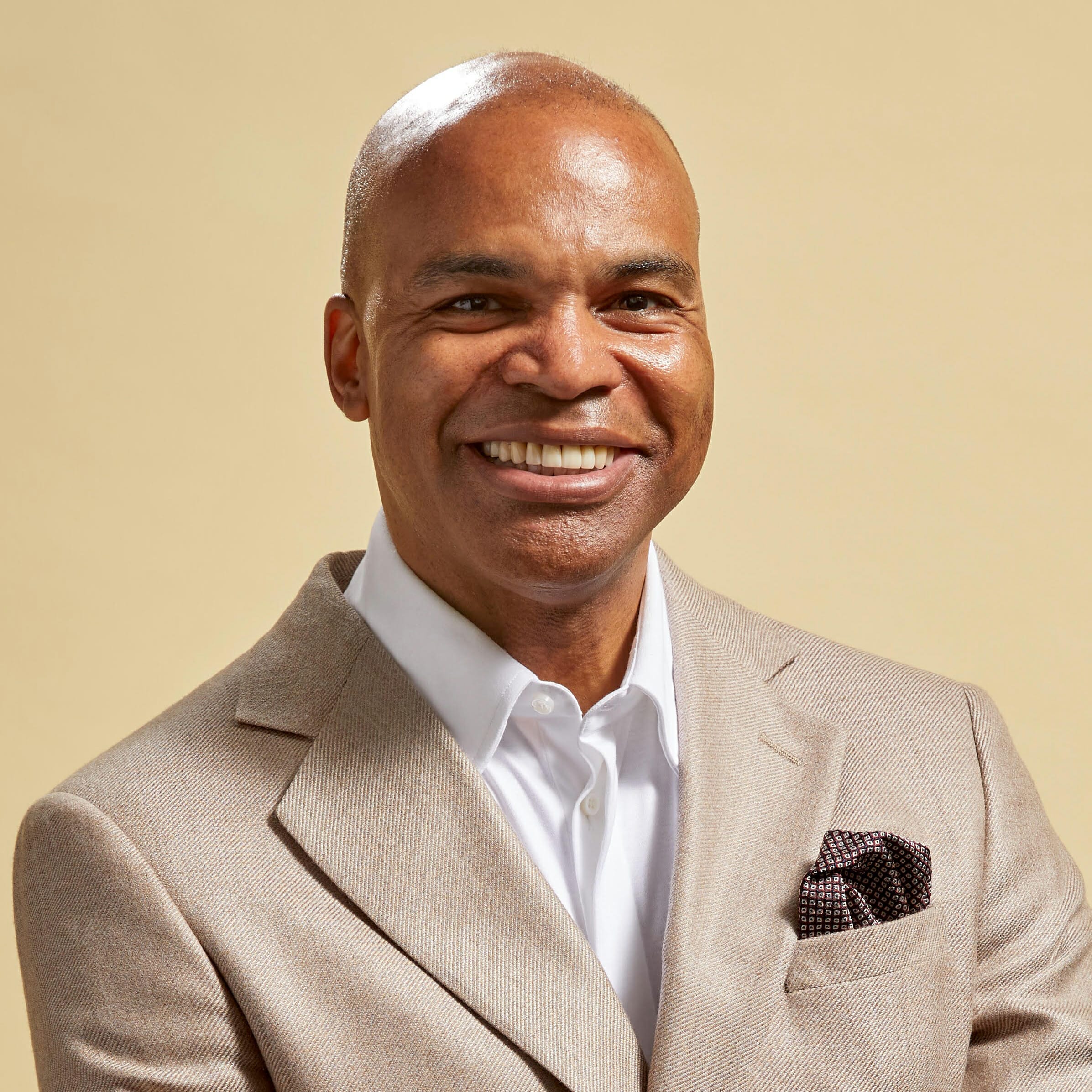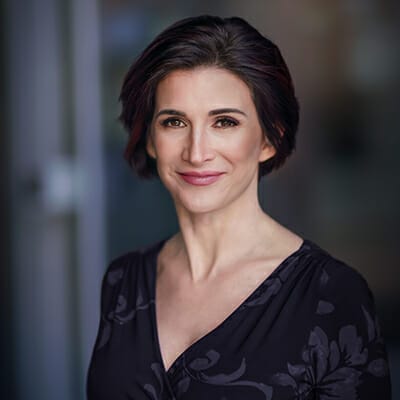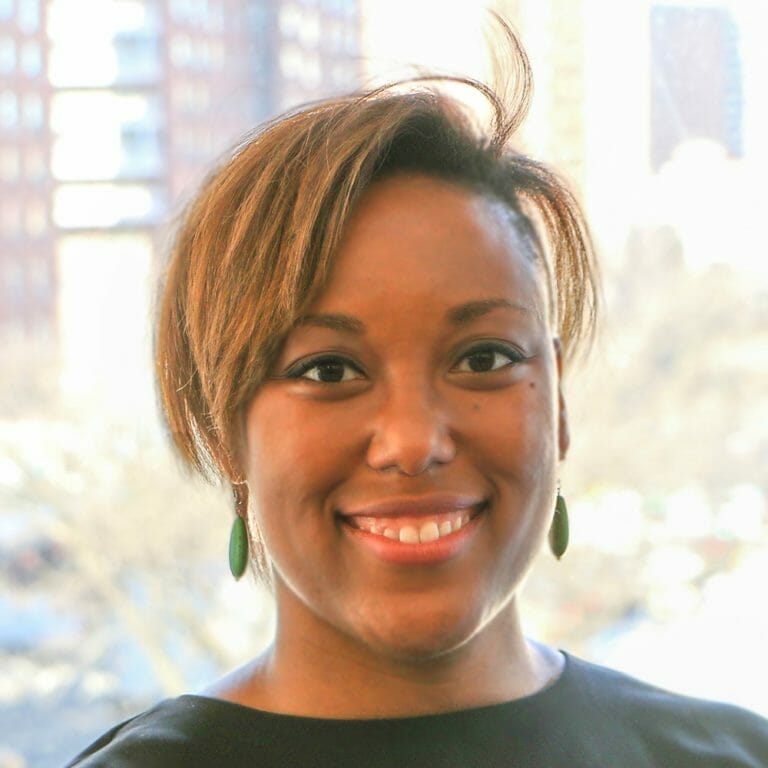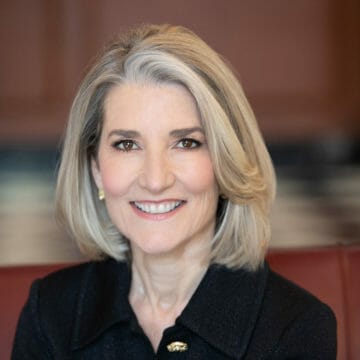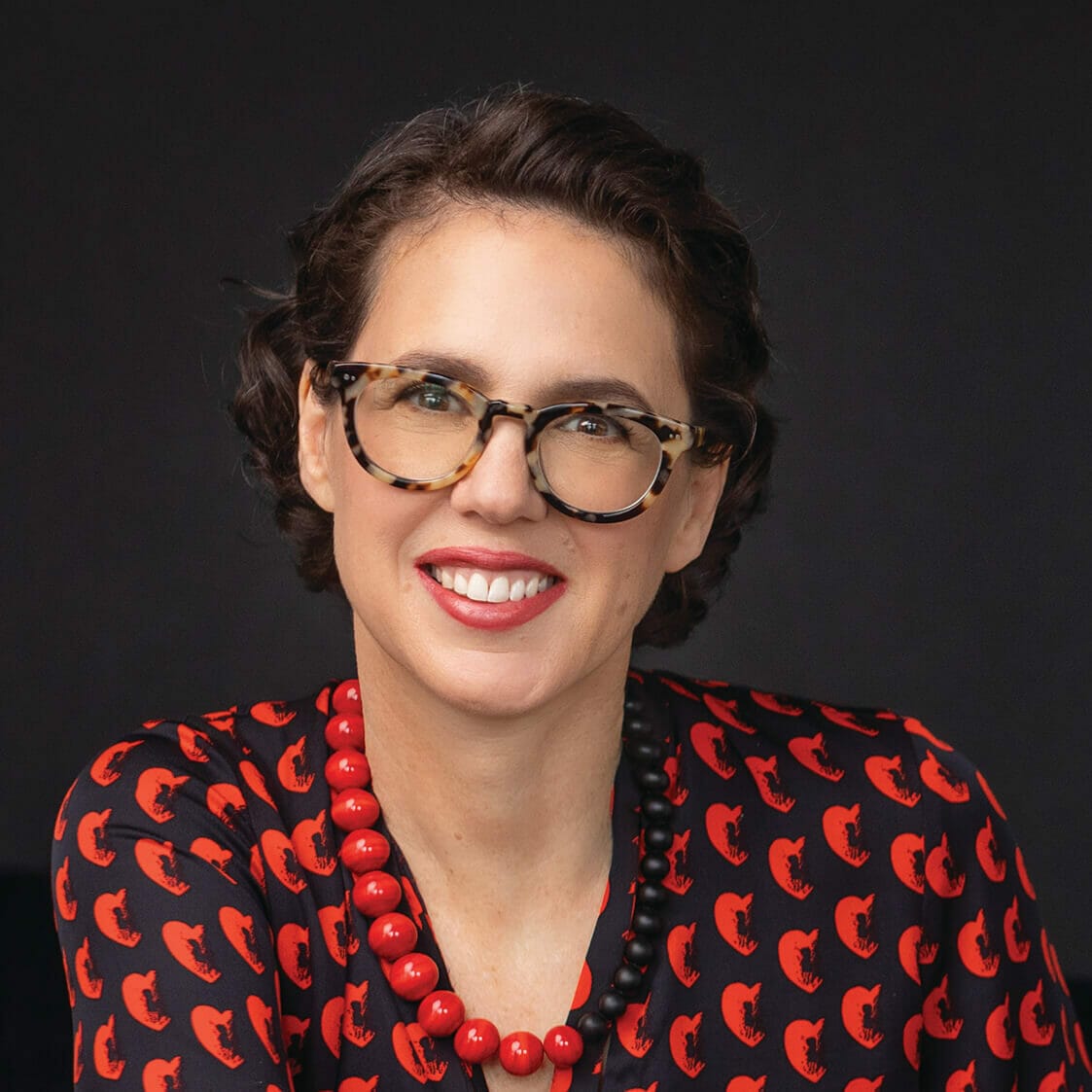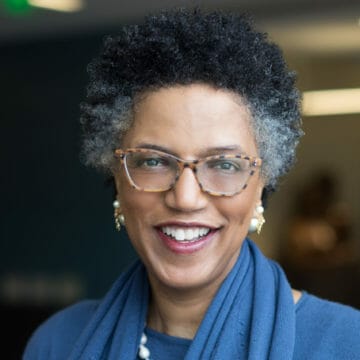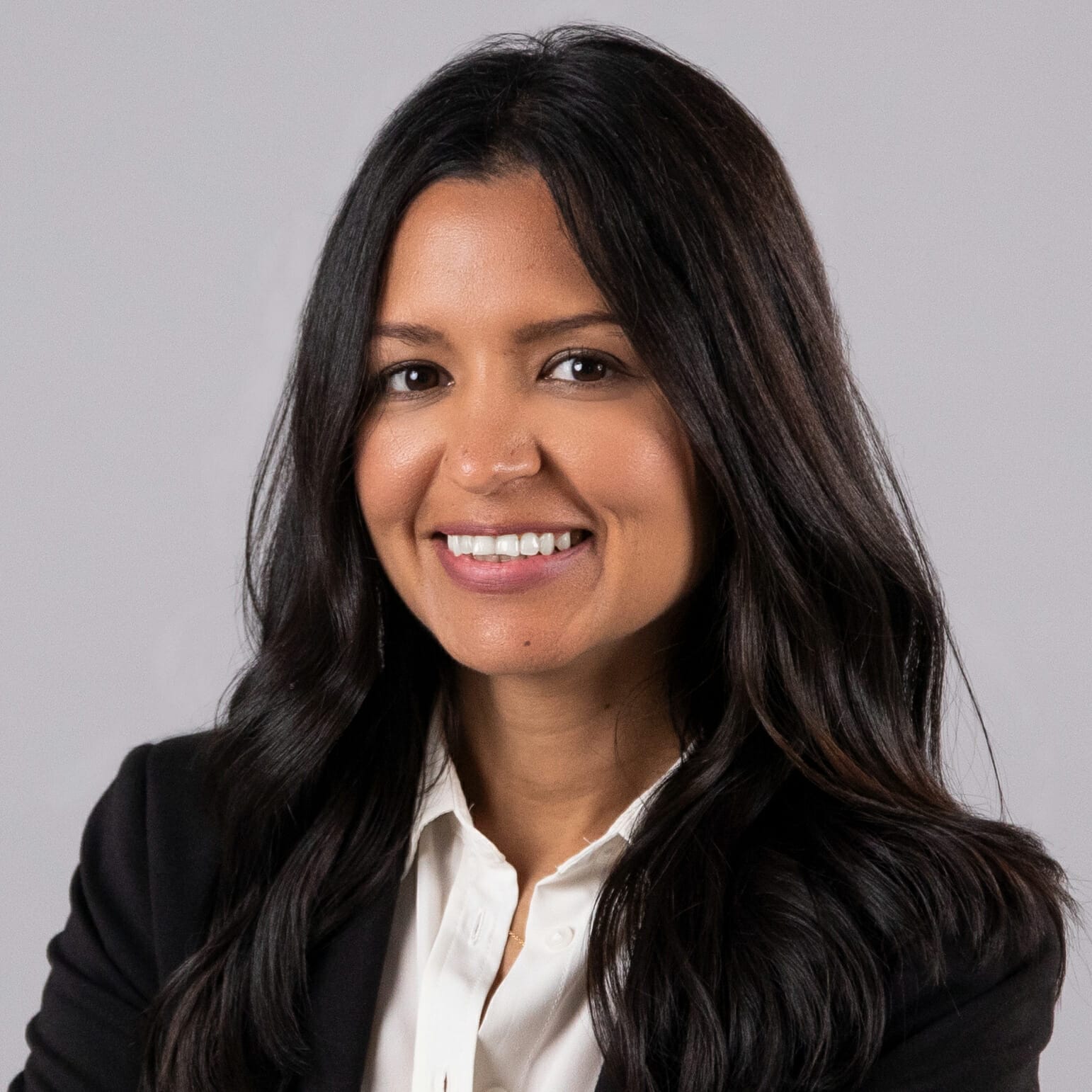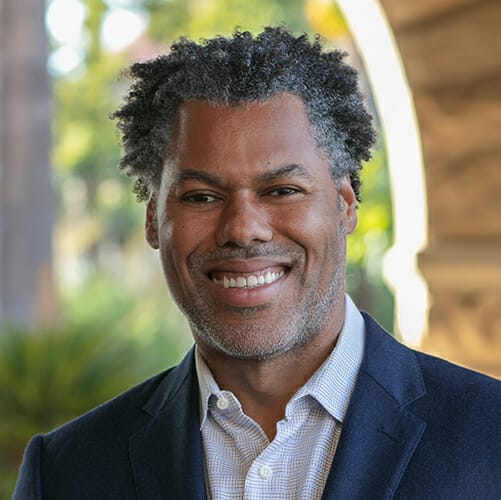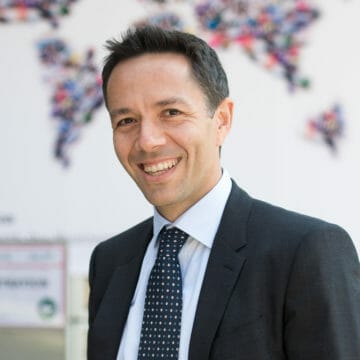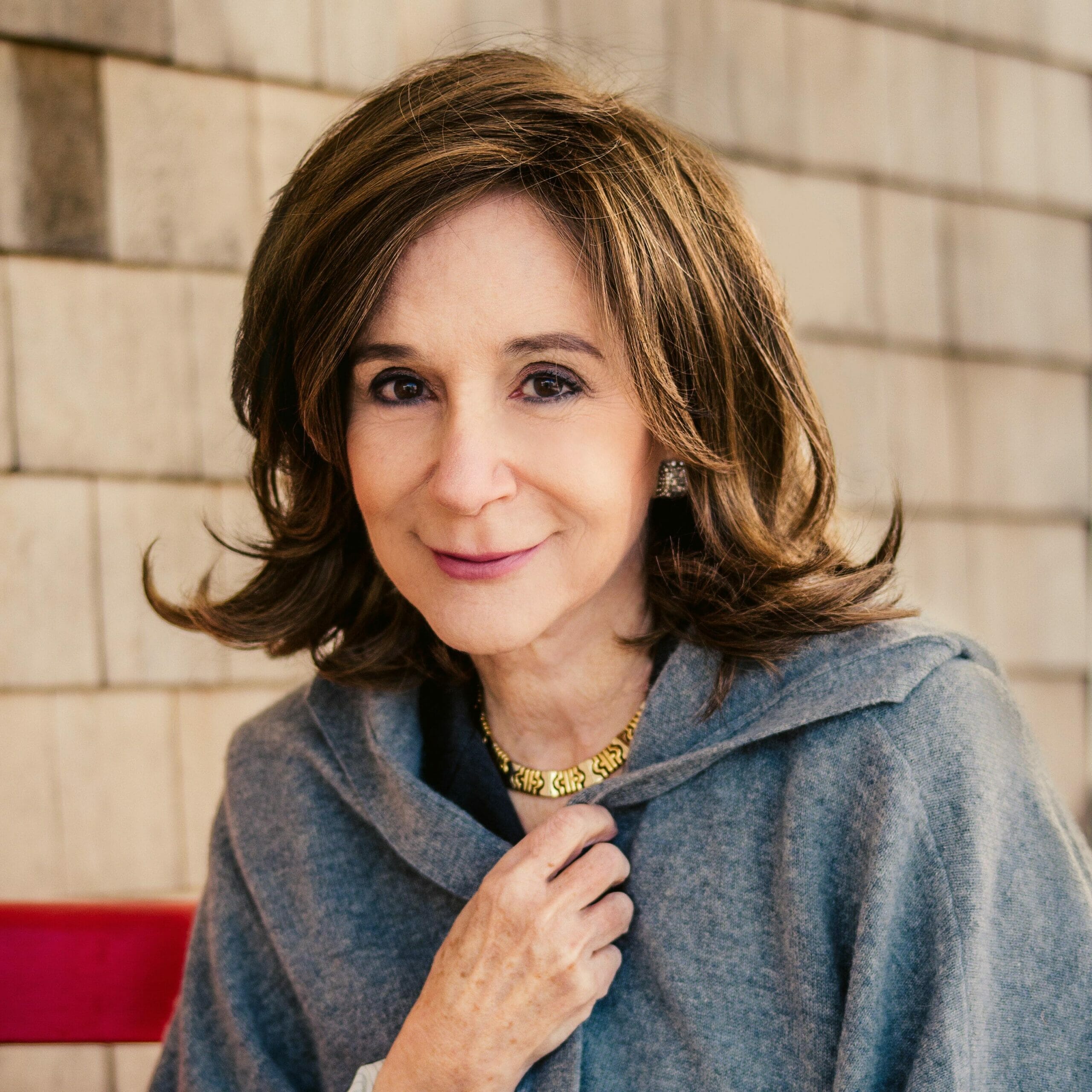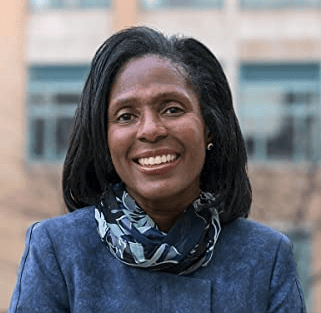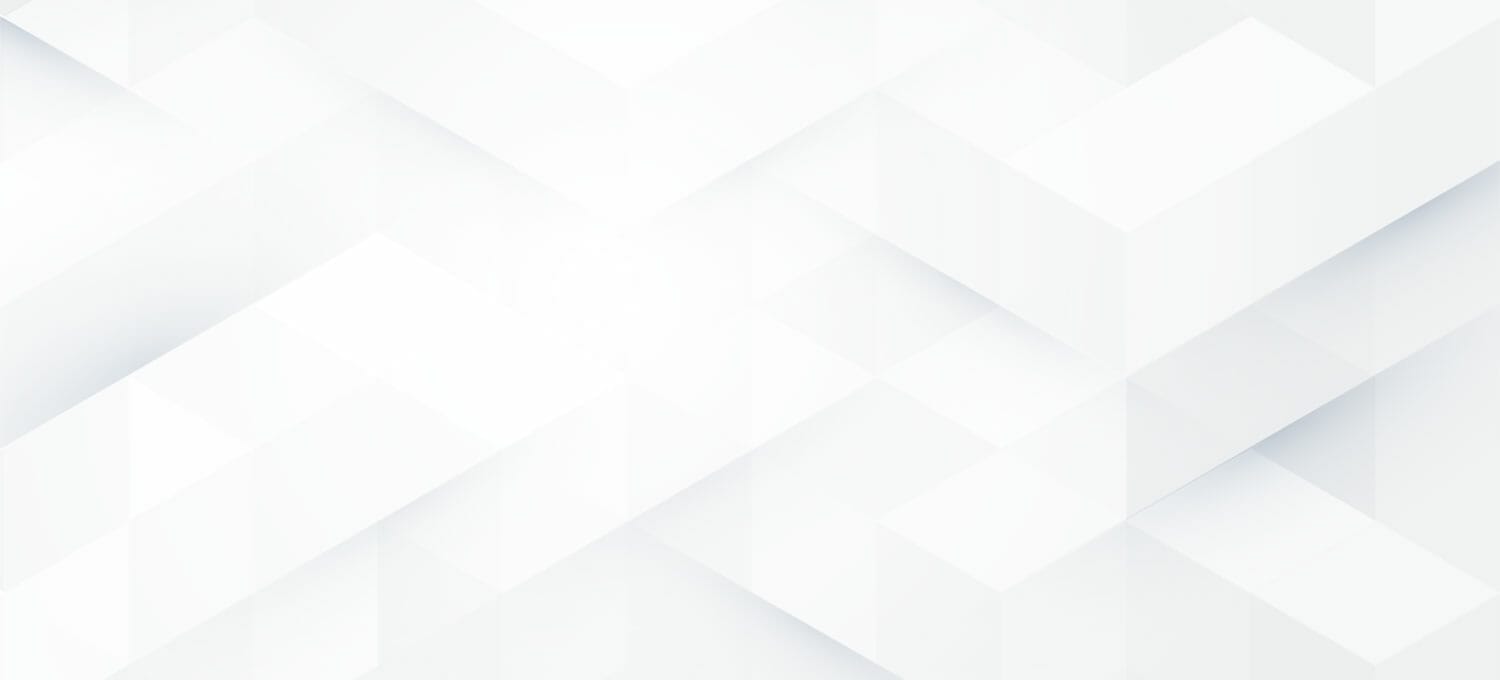Videos
Learn More About Dolly Chugh
Most of us like to believe we are “good people.” But, despite the large number of good people in the world, bias persists within many of our societal systems and organizations. If so many of us are good, why does society continue to tolerate bias, and how can we change for the better?
Award-winning social psychologist and New York University (NYU) Stern School of Business Professor Dolly Chugh (she/her, hear her name) has the answer: let go of our internal definition of a “good person.” In her interactive presentations and fireside chats, Chugh illustrates clear, actionable techniques for leaders interested in listening with intent, increasing accountability and raising inclusivity. Her TED Talk on these groundbreaking concepts was named one of the 25 Most Popular TED Talks of 2018 and currently has almost 5 million views.
“What if I told you that our attachment to being good people is getting in the way of us being better people?” Dolly asks. “We have this definition of good person that’s either or. Either you are a good person or you’re not. And in this either-or definition, there’s no room to grow. In every other part of our lives, we give ourselves room to grow… except in this one, where it matters most.”
At NYU Stern, Chugh’s top-rated classes on cutting-edge leadership, management and negotiation strategies are lauded for their transformational effect on students and executives alike. Noted for her teaching and facilitation skills, Chugh was one of six professors chosen from thousands at NYU to receive the Distinguished Teaching Award in 2020 and one of five to receive the Dr. Martin Luther King Jr. Faculty Award in 2013. Her newest research, which focuses on “bounded ethicality,” explores and explains the “psychology of good-ish people.”
“The person I mean to be stands up for equality, equity, and diversity and inclusion. The person I mean to be fights bias. Sometimes, I do. Sometimes, I don’t,” Chugh admits. “As a believer in these values, I need to do better. The research is there to help us move from having the identity of a believer to the skills of a builder, someone prepared for the necessary growing and grappling involved in driving change.”
Noting that many of the key principles of leadership and management are essentially principles of inclusion, Chugh partners her approachable personality with decades of research to illustrate the small interventions we can take to make a disproportionately positive impact.
An award-winning author, Chugh’s critically-acclaimed, bestselling book, “The Person You Mean to Be: How Good People Fight Bias” (2018), explores surprising concepts that hold organizations back from achieving success and unpacks the tools believers must use to become builders. Her popular newsletter Dear Good People – a free monthly email offering bite-sized and actionable advice on how to be the inclusive person YOU mean to be – continues to grow as she pursues new avenues to create and disseminate knowledge. Her new book, “A More Just Future: Psychological Tools for Reckoning with our Past and Driving Social Change” (Atria Books, October 2022), is already reviewed as a “revolutionary, evidence-based guide for developing resilience and grit and building a better future.” Grounded in established principles such as growth mindset and psychological safety, Chugh’s prominent and refreshing new thinking on empathetic leadership is already helping create more inclusive organizations.
“The fixed mindset tax can be costly for organizations, but research shows we can escape the either/or mindset,” Chugh emphasizes. “By removing the pressure of being a ‘good person’ and equipping people with the right tools, we can make mistakes and learn from them, making mistakes less likely in the future.”
Professor Dolly Chugh is one of the highest-rated instructors on student surveys at New York University Stern School of Business in the Management and Organizations Department. A former contributor to Forbes, Professor Chugh has been interviewed by major media outlets including National Public Radio and University of Chicago Radio. She has also been featured in top publications including Harvard Business Review, New York Times, The Washington Post, The Financial Times, Academy of Management Journal and The American Economic Review, among others.
Chugh has been named an SPSP Fellow, received the Academy of Management Journal Best Paper Award, been named one of the top 100 Most Influential People in Business Ethics by Ethisphere Magazine, and received many other research honors.
Chugh’s first book, “The Person You Mean to Be,” received rave praise from Adam Grant, Angela Duckworth, Liz Wiseman, Billie Jean King and many others. It has been covered on The TODAY Show, The Wall Street Journal, The New York Times, The Atlantic, the 10% Happier Podcast, the goop Podcast, NPR and other media outlets. Her second book, “A More Just Future,” releases in October 2022.
Prior to becoming an academic, Chugh worked at Morgan Stanley, Merrill Lynch, Sibson and Company, Scholastic and Time Inc. Chugh attended Cornell University, where she majored in psychology and economics for her undergraduate degree and Harvard University for her MBA and PhD.
Dolly Chugh is available to advise your organization via virtual and in-person consulting meetings, interactive workshops and customized keynotes through the exclusive representation of Stern Speakers & Advisors, a division of Stern Strategy Group®.
Psychological Safety: A How-To Guide
The need for psychological safety is more urgent than ever. Creating a climate where employees share, rather than withhold their ideas, questions, concerns and mistakes, is central to almost every form of excellence organizations and teams are striving for, ranging from innovation to inclusion. Everyone wants psychological safety; only some know how to build it. In this high-energy, high substance how-to session, award-winning NYU Professor Dolly Chugh builds on cutting edge research from pioneers like Amy Edmondson (Harvard Business School) with stories, insights and tools for building the norms, coaching, feedback and listening practices necessary to psychological safety. Perfect for leaders of all levels, Chugh’s guidance is both actionable and invaluable.
Embracing Conflict: The Unexpected Fuel for Collaboration
We fear conflict at work. But research shows that while conflict can feel bad, it does not have to. In fact, says Dolly Chugh, award-winning NYU professor, conflict is not necessarily the opposite of collaboration; it is the fuel for collaboration (or as Chugh calls it, “conflaboration,” her term for unique teamwork that’s driven by healthy differences). Especially in environments depending on teams and/or teaming, the ability to effectively name differences and navigate them, rather than suppress them, is central to psychological safety and excellence. In this interactive talk, Chugh breaks down the different types of conflict and tools for navigating it, offering each attendee insights on how to make the most of conflict at work.
How to Be a Great Boss: A Toolkit for Increasing Psychological Safety, Wrestling with the Paradoxes of Leadership, and Retaining Your Best Employees
Studies have proven that leaders who intentionally build inclusivity and psychological safety at every organizational level achieve better results and have more productive teams. Through demonstrations, interactive sessions and a refreshing honesty about her life, bestselling author and NYU Professor Dolly Chugh welcomes leaders to explore psychological concepts that often escape standard leadership presentations. Drawing on concepts taught in her top-rated management and leadership classes, her bestselling book “The Person You Mean to Be: How Good People Fight Bias” (2018) and her latest book, “A More Just Future: Psychological Tools for Reckoning with Our Past and Driving Social Change” (October 2022), Chugh invites leaders to physically feel the differences between growth and fixed mindsets, wrestle with paradox, dive into simulations of power structures, and more. Anyone seeking the knowledge and skills necessary to incorporate advanced leadership techniques in their organizations and themselves – including facilitating more inclusive meetings, listening and coaching more effectively, and leveraging stress, among other tools – will find Chugh’s leadership toolkit indispensable.
Activate Your Growth Mindset: How to Make Mistakes Count
We all know that everyone makes mistakes – but are you taking advantage of the opportunities that your mistakes bring to you? “The difference between a fixed mindset and a growth mindset lies in whether we believe we have the room to grow,” says bestselling NYU Professor Dolly Chugh. “We should say, and believe, ‘I know I have work to do in this area.’” Shifting the framework around shame and blame, Chugh demonstrates that the growth mindset makes mistakes less likely in the future, saving money, time and effort. Peppered with engaging discussions and powerful insights, Chugh presents a powerfully interactive lived experience, making the costs of a fixed mindset apparent. This multi-faceted presentation reframes growth mindset to introduce the best way to react and build bridges when you’re at your most defensive, clearly revealing a path forward to a culture willing to learn together.
From Believer to Builder: Fighting Bias as a “Good-Ish” Person
Many of us believe in core values such as diversity, equity and inclusion. But how do we stand up for those values in an effective way in today’s turbulent world? Bestselling author and NYU Professor Dolly Chugh’s research reveals that one surprising cause of inequality often stems from the psychology of “good people.” In this talk, based on her bestselling book “The Person You Mean to Be: How Good People Fight Bias” (2018), Chugh leads us to recognize that our internal labels can lead to defensiveness and miscommunication. Calling us all to action, she emphasizes the critical conclusion that we must re-define a “good person” to a “good-ish person,” someone willing to make mistakes, learn and grow. Chugh’s “real, raw, and standing-ovation worthy” live and virtual presentations utilize experiential learning and decades of ethics research to provide a methodology for fighting bias that can be deployed in all aspects of your life.
Reckoning 101: Learning from the Past to Change Tomorrow, Today
“Those who do not reckon with the past are destined to repeat it.” NYU Professor and social psychologist Dolly Chugh seeks to alter our cyclical timeline by uncovering the origins of racial harm in our collective past. Seeing that the horror of racial injustice in American history can generate feelings of shame, guilt, disbelief and resistance, Chugh introduces us to the science of reckoning with our complicated past. Sprinkled with honest, personal histories and practical advice adapted from her latest book, “A More Just Future: Psychological Tools for Reckoning with Our Past and Driving Social Change” (October 2022), Chugh invites us to dismantle the systems built by our ancestors and work toward a more just future together.

A More Just Future: Psychological Tools for Reckoning with Our Past and Driving Social Change
(Atria Books, October 2022)
A Longer Shortlist Increases the Consideration Of Female Candidates In Male-Dominant Domains
(Nature Human Behaviour, January 2021)

Allies' Motives, Merits and Missteps: How Dominant Group Members Can Promote Inclusive Organizations
(Academy of Management, August 2019)

Diversity Thresholds: How Social Norms, Visibility, and Scrutiny Relate to Group Composition
(Academy of Management, February 2019)
Award-winning social psychologist and New York University (NYU) Stern School of Business Professor Dolly Chugh is a master of helping organizations become the organizations they want to be. As the author of the bestselling “The Person You Mean to Be: How Good People Fight Bias,” and the upcoming “A More Just Future: Psychological Tools for Reckoning with Our Past and Driving Social Change” (October 2022), she has a full understanding of how labeling a person or organization as “good” can prove to be its biggest hindrance, hampering innovation. Chugh draws on multiple avenues of experience to inform her organizational mastery, including her undergraduate degree in psychology and economics from Cornell University, her Harvard University MBA and Ph.D., and her experience working for Morgan Stanley, Merrill Lynch, Sibson and Company, Scholastic and Time Inc. prior to entering academia. Whether presented virtually or in person for leaders, teams and executives, or delivered as keynotes or intimate workshops, Chugh’s advisory services are useful, memorable and engaging. “At work, the day after we connect,” she divulges, “you will see things you didn’t see before, and you’ll be more comfortable hearing ideas and experiences different than your own.”
The People We Mean to Be – How to Champion Inclusion
If you think you’re already a “good person,” great news – you’re on your way to transforming from “believer” to “builder.” According to NYU Professor Dolly Chugh, being a believer means you already have great faith in the value of an ethical, moral and inclusive organizational culture. All you need are the knowledge and tools to build it. In seeking to shift our natural tendency to view being a good person as a binary concept towards one of being a learner who is always aspiring to understand and do better, Chugh challenges us to reach the higher standard of being “good-ish.” Called “real, raw and memorable” by her students, she illuminates invisible biases and our moral identities, helping leaders and organizations recognize “good-ish” as the next goal on their path to becoming more inclusive.
In her highly interactive workshops, Chugh teaches leaders how to shape a more just future by adopting the personal skills needed to lead diverse teams and integrate perspectives representative of their employees. Highly experiential and surprisingly entertaining, Chugh draws on decades of social psychology research to unpack the science of bias and the skills of challenging it. Noted for her teaching and facilitation skills, Chugh’s top-rated classes on cutting-edge leadership, management and negotiation strategies are lauded for their transformational effect on students and executives alike. Using essential truths drawn from her bestselling “The Person You Mean to Be: How Good People Fight Bias” (2018) and the upcoming “A More Just Future: Psychological Tools for Reckoning with Our Past and Driving Social Change” (October 2022), she clearly conveys, “Believing in the values of equality is no longer enough. We need to be people with the skills to make it better and fight bias.”
Her workshops offer a customizable opportunity for groups and individuals to look outwardly at their responsibilities to the world, to look inwardly at practices already existing in organizations and systems, and to look within their personal skills and perspectives to lead effectively. Topics covered can include:
- How to Be a Great Boss
- Reflecting on the Why and Creating Norms
- Designing and Facilitating Meetings
- Delegating to Others
- Listening to and Coaching Others
- Championing Inclusion
“Dolly Chugh joined our organization for a virtual fireside chat focused on advancing a human-centered approach to diversity, equity and inclusion. We often do sessions like this, but Dolly’s session was special – in terms of the number of people that joined and the overwhelmingly positive feedback we received. That’s because Dolly is a special speaker. As in her beautifully written, and thoroughly-researched, book (“The Person You Mean to Be”) and its complementary newsletter (Dear Good People), Dolly speaks from the heart, with a deep sense of self-awareness, empathy, and authority. Her research is insightful, her knowledge is both lived and learned, and her delivery is pitch-perfect. She is a powerful addition to any event.”
“The fireside chat with Dolly was excellent; truthfully, it far exceeded my expectations. I received so much positive feedback from teachers and staff and administrators. Everyone spoke about how much they learned and how inspired and hopeful they left the session. Thank you again, Dolly, for helping to facilitate such a meaningful experience for our community.”
“The Fireside Chat was amazing, I know everyone wished we could have had even longer with Dolly! The content was incredibly relatable and we have heard a lot of positive feedback. The concepts Dolly shared really resonated and many people talked about how they will readily implement the actions Dolly recommended.”
“[Dolly Chugh] advised us to identify our short-term and long-term priorities and to put people or things in place to help us align our actions to those priorities. This advice has been so valuable at school because there are so many interesting things going on all of the time that I’ve had to find a way to say no to the things that don’t align with my priorities. It’s not easy for me to say no but it has become a lot more manageable because I know that I’m saying no in order to stick to what matters most to me in life.”
Praise for "A More Just Future"
“Dolly Chugh is the wisest and warmest of behavioral scientists. Let her show you how to unpack your own mistaken assumptions about our past so that our unconditional love for our nation can co-exist with unflinching honesty. Patriotism need not be simplistic to be idealistic. This book is a welcome and urgent invitation to open our eyes to the past and become better ancestors today.”
“If you too are feeling the call to be more brave, more active, and more just … then this is the book you’ve been looking for.”
“["A More Just Future] is the thoughtful and brilliant work we’ve all been waiting for that will help readers grapple with our legacy of systemic racism- both past and present. 'A More Just Future' expertly provides readers with indispensable practical and evidence-based tools to overcome the psychological barriers that impede us from truly reckoning with injustice.”
“In the Japanese art of kintsugi, artisans take broken pottery and restore it by sealing the cracks with precious metals. In this instant classic, Chugh teaches us her version of that art to address our own fractured national history. Instead of ignoring cracks or discarding shards, she shows us how to restore the past in a way that makes the future feel all the more startling and precious. This book is required reading for all patriots who love their country enough to see its wounds—and heal them.”
“Even as a student of this field, I found myself underlining and highlighting passages on every page. Dolly Chugh gets to the very heart of what is preventing progress and loosens those bonds gently and with deep humanity. This book is grounded in solid research and lived experience, but also in empathy. Absolutely everyone who reads it will find useful advice on how to be a better person.”
“A vulnerable, compassionate, and pragmatic psychological guide to facing the darkest corners of America’s past.”
“Marked by its authenticity and sense of encouragement, this is a welcome look at how the average person can help fulfill America’s promise.”
Praise for “The Person You Mean to Be”
“Finally: an engaging, evidence-based book about how to battle biases, champion diversity and inclusion, and advocate for those who lack power and privilege. Dolly Chugh makes a convincing case that being an ally isn’t about being a good person—it’s about constantly striving to be a better person.”
“Dolly Chugh applies the power of a growth mindset to work on equity and inclusion at a time when it is much-needed. ‘The Person You Mean to Be’ is essential reading.”
“This is a book for anyone who thinks of themselves as a pretty decent human being but who knows, deep in their heart, they could be better. A cocktail of stories and science that gets you thinking and, more important, gets you acting.”
“Never has an author made it so easy to see our blind spots and the downsides of our best intentions. Dolly Chugh’s brilliant lens reveals the invisible, uncomfortable truths of ordinary privilege, yet offers a light that inspires and guides each of us to be the moral, inclusive leader we hope to be.”
“Dolly Chugh helps us identify our ‘platform of privilege’ and guides us on how we can use this and other tools to create positive change. She encourages us to accentuate our strengths and to manage our weaknesses, and forces us to focus on being better and stronger in everything we do.”
“Dolly Chugh has written the most important and actionable book on reducing bias that I have read. Using powerful and enduring findings from research on bias, she explains the reasons we fail to be the person we mean to be and provides prescriptions for managing the pitfalls of our humanness. This deeply personal book is a must-read.”
“In authoritative yet accessible prose, social psychologist Dolly Chugh outlines how we can all make the indispensable shift from being ‘believers’ who live under the ideal of inclusion to being ‘builders’ who live up to that ideal. This book is both guide and gift.”
